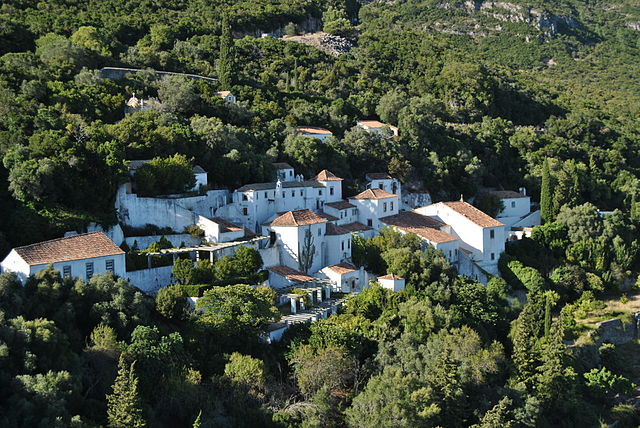31st Prospective Meeting 05/09/2022

The 31st Prospective Meeting takes place from 5 to 7 September at Convent of Arrábida.
The Instituto de Prospectiva has been responsible, since 1992, for the annual, never-interrupted holding of a Prospective Meeting, which this year celebrates its 31st edition. All the Meetings have been held at the Convento da Arrábida, sponsored by Fundação Oriente (and also by the National Commission for Portuguese Discoveries, in the early years) and are aimed at debating and clarifying issues considered fundamental for the future of Portuguese society and from Europe, seeking the direct involvement of the most relevant actors together with specialists, national and foreign. The Prospective Meetings are working meetings and their very continuity constitutes today a heritage of dialogue and mutual knowledge, rare in Portuguese society.
Initiated after an invitation from the European Commission, through the Prospective Cell then created by Jacques Delors, to integrate the European Prospective Study on Europe after 1992 (that is, after the completion of the Single Market), the Prospective Meetings over the years, they involved public actors, namely from the academic sectors, as well as political leaders, business leaders, social partners, and national and foreign specialists.
Over the years, the Meetings have especially focused on debating and clarifying the conditions for the development of Portuguese society (and European societies) as knowledge-based societies and economies.
Thus, studies developed for the European Commission on the Future of Scientific Culture in Europe, or on the Future of Science Education in the EU, accompanied the recurrent analysis of the conditions for the development of business research in Portugal, the Prospective of Higher Education in Portugal (in 1993) or the design and conception of the first European strategy for the Information Society (eEurope), in 1999. More recently, the analysis of the Portuguese debt crisis and its consequences, industrialization conditions, the evolution of the technological balance of payments and the growth of exports, the promotion of human capital in Portugal, the maturity of the national scientific and technological capacity and its relationship with social and economic development, were also on the agenda of the Meetings. In recent years, the Meetings also included the preparation of the Portuguese space strategy, the discussion of the future of work and the fight against precariousness at work and the development of broad international platforms (namely in the educational, scientific and technological fields).
The Prospective Meetings were launched and coordinated by José Mariano Gago (1948-2015) until 2014 and, since then, have been coordinated by João Ferreira do Amaral and Manuel Heitor. They aim to stimulate prospective analysis in Portugal and to guarantee an annual space for critical and open reflection around structuring issues for the country's development and its international positioning, as well as Europe and its positioning.
This meeting was held with the support of Fundação para a Ciência e a Tecnologia (UIDP/50009/2020- FCT and UIDB/50009/2020- FCT).



